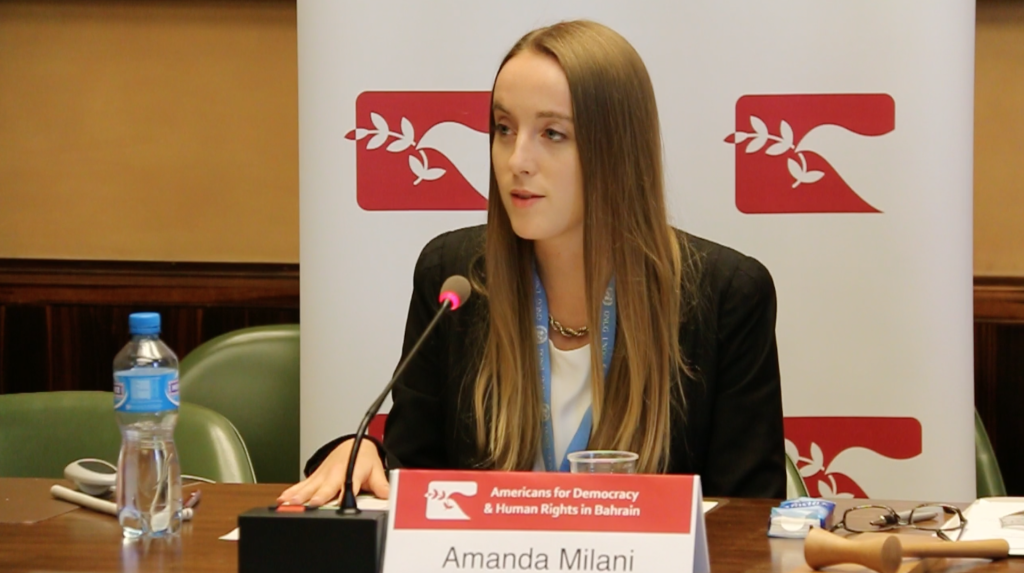https://www.youtube.com/watch?v=i0Xm9nrb5Pc&feature=youtu.be
On 30 June 2015, ADHRB’s United Nations Liaison Amanda Milani delivered an oral intervention at the 29th session of the United Nations Human Rights Council in Geneva under Item 9 on the discrimination against the Baharna and Ajam in Bahrain. Please continue reading for full remarks or click here to download a PDF.
الرجاء الضغط هنا لقراءة هذه الرسالة باللغة العربي
Mr. President,
Recalling the Durban Declaration’s commitment to combating all forms of “racism, racial discrimination, xenophobia, and related intolerance,” Alsalam Foundation together with Americans for Democracy & Human Rights in Bahrain, the Bahrain Institute for Rights & Democracy and the Bahrain Center for Human Rights, call upon States to fulfill this commitment with a view towards achieving the full purposes of this instrument.
With this in mind, we raise the Council’s attention to the discriminatory policies of certain countries like Bahrain. In Bahrain, the Government discriminates against the Baharna and Ajam populations.
The government has specifically persecuted the indigenous Baharna community for their political dissent. Of the 56 people killed by the misuse of tear gas and nonlethal shotguns in the country since 2011, all belong to the Baharna community.
Bahrain’s discriminatory policies also extend to the Ajam, an ethnic group of non-Arabs originally from Iran. This community has been targeted by the government for many years, subjected to mass citizenship revocation and unwarranted deportation. Over the years, the community of stateless Ajam also suffered exclusion by the State and deprivation of their social rights, including the right to own property, to travel abroad, to receive scholarships and to obtain a higher education.
Recently in 2012, a group of 32 individuals, 19 of which were Ajam, had their Bahraini citizenship revoked without due process. Similarly, in January of this year, a further 72 individuals had their citizenship revoked, 9 of which were Ajam. Within this group, those who still reside in Bahrain are most vulnerable. These individuals must find a sponsor or face the threat of imminent deportation. They have also had their bank accounts seized by order of Bahraini authorities. Victims of these discriminatory measures include Ebrahim Karimi, Taimoor Karimi, Jawad and Jalal Fairooz.
We therefore call on the Council to take urgent and effective measures towards ensuring the equal promotion and protection of human rights in countries like Bahrain.
Thank you.





